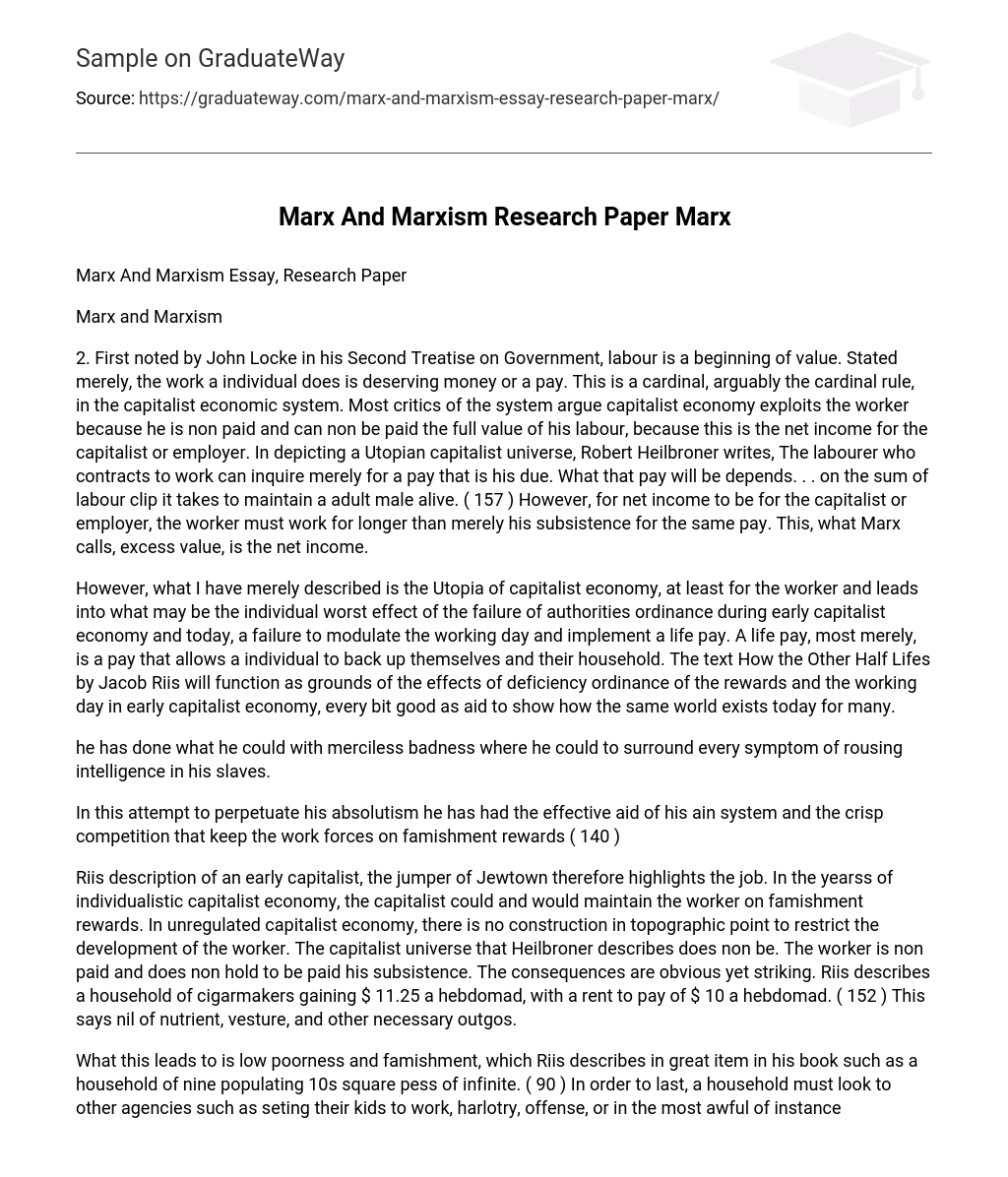First noted by John Locke in his Second Treatise on Government, labour is a beginning of value. Stated merely, the work a individual does is deserving money or a pay. This is a cardinal, arguably the cardinal rule, in the capitalist economic system. Most critics of the system argue capitalist economy exploits the worker because he is non paid and can non be paid the full value of his labour, because this is the net income for the capitalist or employer.
In depicting a Utopian capitalist universe, Robert Heilbroner writes, The labourer who contracts to work can inquire merely for a pay that is his due. What that pay will be depends. . . on the sum of labour clip it takes to maintain a adult male alive. ( 157 ) However, for net income to be for the capitalist or employer, the worker must work for longer than merely his subsistence for the same pay. This, what Marx calls, excess value, is the net income.
However, what I have merely described is the Utopia of capitalist economy, at least for the worker and leads into what may be the individual worst effect of the failure of authorities ordinance during early capitalist economy and today, a failure to modulate the working day and implement a life pay. A life pay, most merely, is a pay that allows a individual to back up themselves and their household.
The text How the Other Half Lifes by Jacob Riis will function as grounds of the effects of deficiency ordinance of the rewards and the working day in early capitalist economy, every bit good as aid to show how the same world exists today for many he has done what he could with merciless badness where he could to surround every symptom of rousing intelligence in his slaves.
In this attempt to perpetuate his absolutism he has had the effective aid of his ain system and the crisp competition that keep the work forces on famishment rewards ( 140 ) Riis description of an early capitalist, the jumper of Jewtown therefore highlights the job. In the yearss of individualistic capitalist economy, the capitalist could and would maintain the worker on famishment rewards. In unregulated capitalist economy, there is no construction in topographic point to restrict the development of the worker.
The capitalist universe that Heilbroner describes does non be. The worker is non paid and does non hold to be paid his subsistence. The consequences are obvious yet striking. Riis describes a household of cigarmakers gaining $ 11.25 a hebdomad, with a rent to pay of $ 10 a hebdomad. ( 152 ) This says nil of nutrient, vesture, and other necessary outgos. What this leads to is low poorness and famishment, which Riis describes in great item in his book such as a household of nine populating 10s square pess of infinite. ( 90 ) In order to last, a household must look to other agencies such as seting their kids to work, harlotry, offense, or in the most awful of instances, cutting outgos, kids.
Many capitalists contend if one works hard, one will acquire in front. However, in the twenty-four hours of unregulated capitalist economy, working more hours does non intend overtime, frequently merely creates more excess value, more net income to the employer.
Even with the coming of the lower limit pay the job still exists today. Soon, the federal lower limit pay stands at $ 5.15 an hr. Harmonizing to the Department of Labor, 40 % of those who earn a lower limit pay are the exclusive supplier for their households, which would put them under the poorness degree.





